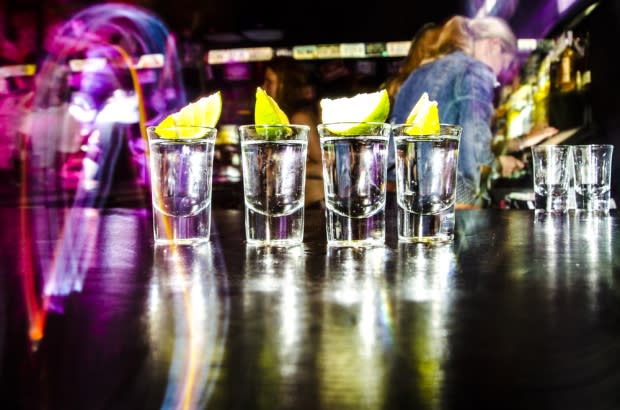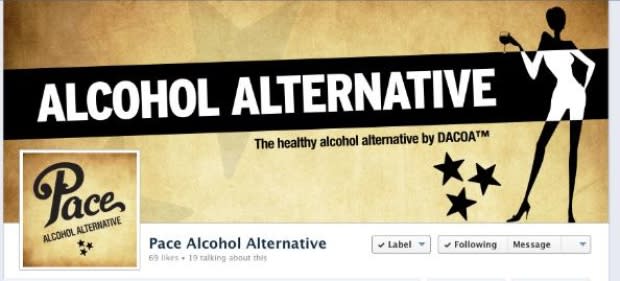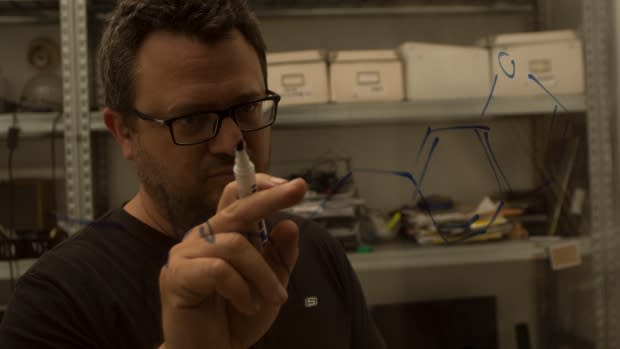'It never killed anybody': Is this drink really a new 'alcohol alternative'?
Shot-sized bottle. Fancy label. Clearish-yellow liquid. It looks like the single-serving bottles of rum or vodka near the checkout of your local liquor store.
But don't let the packaging fool you. Pace isn't your typical tipple.
Health Canada says it's a controlled substance and its sale is illegal.
"Pace is an illegal and unauthorized product in Canada," the federal department said in a statement to CBC News.
"Health Canada is taking appropriate follow-up actions to prevent the sale of this product in Canada."
But the manufacturer, Diet Alcohol Corporation of the Americas, describes Pace as legal on its website. It describes the drink as a brand-new "alcohol alternative" that packs a similar buzz to booze — with zero alcohol, calories or hangover.
The company describes the active ingredient in Pace, MEAI, as a "new synthetic" that delivers "a mild inebriation along with a feeling of contentedness that curbs overconsumption and excessive drinking."
It also says on its website that the product is "absolutely" legal.

According to Ezekiel Golan, lead scientist with Pace, "tens of thousands" of bottles have already been sold online and shipped to Canadians.
"It's way too popular," said Golan, who is also known by the nickname Dr Z. "We're not going to have enough stock to supply the Christmas rush, it seems," he said.

But the drink's hazy legality, unpredictable effects and unknown long-term health impacts might give pause to consumers chasing a buzz.
Controversial creator
Golan — a Vancouverite who claims to have worked for the world's biggest pharma companies and to hold a PhD in mathematics — said he invented MEAI in 2008.
It's one of many chemicals he said he's synthesized and tried on himself over a controversial 15-year career in the shadowy world of cutting-edge psychoactive drugs. Some people have called him the "Godfather of Legal Highs."
His method — which he calls NeoShulginism after Alexander Shulgin, the American biochemist known for self-testing and researching psychoactive drugs — is unconventional.
"When I was studying heroin, I went and lived with a coven of addicts," Golan said. "I got into as far as I could their lifestyle. I tried to get myself addicted [to heroin] because I don't think there's any way to understand that kind of addiction without really being there."

Mephedrone, for example — a speedy, amphetamine-like club drug that Golan co-invented and helped popularize — was banned in the U.K. in 2010 after being implicated in some 38 deaths.
Unlike mephedrone, Golan said, MEAI has "never killed anybody."
It's also "spanking brand new," he said. "The people that work for the company, all of them use it.
"The product … is 50-ml bottles of a powdered active called MEAI in certified mineral water. That's it."
The full name for MEAI is 5-methoxy-2-aminoindane. DACOA, a new company, owns the intellectual property to MEAI.
It is manufactured in India under a GMP, or "good manufacturing practices" licence, then bottled in Delaware and shipped to consumers.

Schedule I substance
Pace claims on its website that MEAI is "neither regulated nor scheduled in the USA or Canada."
But a statement to CBC News, Health Canada stated it "is aware of MEAI and that it is considered to be a Controlled Substance (Schedule I)" — close enough to amphetamines to be covered under the schedule's analogue provision. That means speed and and MEAI have similar chemical structures and no one can have it in their possession.
But neither the RCMP, or the Canada Border Services Agency, appear to have the authority to stop Pace from being shipped to Canada or penalize people for possessing it.
"The requirements to import a particular substance in Canada falls under Health Canada's responsibility," the agency said in an emailed statement.
'Maybe incorporating it into your life is debilitating in a way we haven't found out yet. Maybe there is some kind of long-term damage.' - Ezekiel Golan, inventor of MEAI
"We did some inquiries and confirmed that this would be enforced by Health Canada," said Cpl. Jullie Rogers-Marsh of the New Brunswick RCMP.
Golan also disputes that Health Canada can stop the company from selling its product to Canadian consumers.
"We've read the drug laws," he said. "This doesn't appear anywhere in the drugs laws in Canada. Pharma always moves ahead of the legislation."
'Why take the risk?'
Legality aside, Golan acknowledges the risks of consuming it.
"Maybe incorporating it into your life is debilitating in a way we haven't found out yet," he said. "Maybe there is some kind of long-term damage."
But for people who suffer from a debilitating addiction to alcohol, Golan said, MEAI might provide an alternative — and help them control their drinking.
"Some people have such an acute problem with alcohol that they want a solution now," he said.
That said, Golan said, "we don't particularly want them to try it if they're on the fence."
"Why take the risk?"

